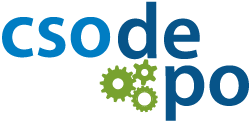Urbanism Fellowships in Yerevan & Baku
Source
Duration: 3 Months (May-July 2020)
Amount: $1,000 USD
Deadline: March 10th, 2020
Ajam Media Collective (ajammc.com) is offering fellowships for scholars, journalists, community activists, and documentary filmmakers based in Yerevan and Baku for Summer 2020. The project is co-sponsored by the Mejlis Institute (mejlisinstitute.org) and Məhəllə (mehelle.org).
Project Description
For much of the nineteenth and twentieth century, Baku and Yerevan were cities of great ethno-religious, linguistic, and architectural diversity. Their historic neighborhoods not only housed people of various backgrounds, but they were also home to shared social spaces. Following the rise of inter-ethnic conflict and the outbreak of the Nagorno-Karabakh War, Armenian residents of Baku and Azerbaijani residents of Yerevan were either forcibly expelled or voluntarily relocated, leaving behind their friends, neighbors, and homes. In some cases, those who were displaced were able to contact their counterparts fleeing the other country and negotiated housing exchanges.
The aim of this project is to record and preserve the memory, oral histories, and material culture of this population transfer, especially from those Armenians and Azerbaijanis who exchanged homes during the early years of the Nagorno-Karabakh War. Working with an international team, this initiative will train fellows to utilize geo-spatial mapping software, 360-degree video, documentary footage, and digital archiving practices to build an online multimedia platform. In addition to serving as a scholarly resource, it will make it possible for former residents to explore their old neighborhoods, reconnect with old friends, as well as to understand the current and past struggles of those who replaced them.
Project Details:
The project consists of a total of 6 fellowships: 2 Research Fellowships (1 in Baku & 1 in Yerevan) and 4 Urban Practice Fellowships (2 in Baku & 2 in Yerevan).
1. Research Fellowship
The Research Fellow will be responsible for conducting archival research in municipal and state institutions as well as private collections in order to collect historical data about the neighborhoods that once housed ethno-religious minorities, as well as neighborhoods in which displaced people have settled. Objects of interest include but are not limited to: old maps, city plans, photographs, newspaper articles, memoirs and literature, documentary videos, politics reports, census reports, property documents, and objects of material culture.
– A successful candidate should have experience working in local archives and in local languages (Azerbaijani and Russian in Baku, Armenian and Russian in Yerevan).
– The Research Fellow will coordinate and meet with the project managers and Urban Practice Fellows on a bi-weekly basis.
2. Urban Practice Fellowship
Urban Practice Fellows will work as a team of two. They will operate in relevant neighborhoods to collect geo-spatial data, conduct video and audio interviews with residents, and to record changes to the urban environment through state and private development schemes. Fellows will be tasked with building and maintaining relationships with people who have been displaced and resettled in relevant neighborhoods.
– A successful candidate should have experience working with audio and visual materials. Previous work in documentary filmmaking will be preferred.
– Candidates should have their own filming equipment for conducting audio and film interviews. 360 degree video cameras will be provided by Ajam MC.
– The Urban Practice Fellows will coordinate and meet with project managers and Research Fellows on a bi-weekly basis.
Fellowship Requirements
The Fellowships are open to all ages. In addition to their local language (Armenian or Azerbaijani), successful candidates should have a good command of English. Knowledge of Russian is also preferred. In addition to the requirements listed above, the fellows must:
1. Attend an initial online orientation and training in data collection
2. Fellows must dedicate 10-15 hours a week to the project
3. Attend bi-weekly meetings with project managers at a physical location
4. Attend an end-of-fellowship workshop in Tbilisi, Georgia in Early August (expenses will be covered by the program)
How to Apply
In order to apply for the fellowship, please send an email to [email protected] with the following documents:
1. Curriculum Vitae or Resume detailing previous relevant work
2. A 300-500 word Statement of Purpose that should address the following:
– Which Fellowship you are applying for: 1) Research or 2) Urban Practice
– Why are you interested in the project?
– What qualifications do you have that will help you conduct this project?
– What skills and information do you hope to learn from the project?
Please email [email protected] if you have any additional questions.
